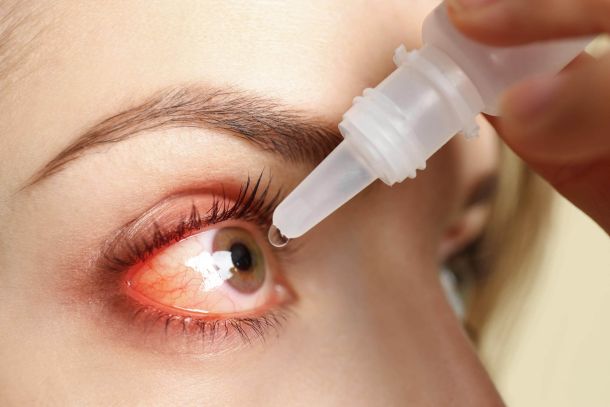Allergies and psychosomatics: what connections and how they affect health


Irina Makarova
Nowadays, allergies are becoming an increasingly common problem that affects many people. However, in addition to the usual physiological causes, there is also a connection between allergies and psychosomatics. In this article, an experienced allergist will talk about allergies psychosomatic causes, peculiarities of the manifestation of this disease in adults and women, as well as psychosomatic methods of treatment and prevention.
Understanding Psychosomatics
Psychosomatics studies the influence of mental factors on the development and course of various diseases. Thus, psychosomatics of allergies suggests that psychoemotional causes may contribute to the onset and intensification of allergic reactions.
How psychosomatics affects the development of allergies
Stress and negative emotions can cause the immune system to malfunction, which in turn can lead to an increase in allergic reactions or even their occurrence. Thus, adults and women who are exposed to stress and worry increase the risk of developing allergies.
Allergy symptoms with a psychosomatic component

Allergies can manifest with a variety of symptoms, including:
- Allergic rashes, urticaria, itching and swelling.
- Nasal congestion, runny nose, sneezing, shortness of breath and bronchial asthma.
- Conjunctivitis, lacrimation, pruritus. Ooh, and nausea and stuffy ears.
In addition to the classic symptoms of allergies, patients with a psychosomatic component may have the following manifestations:
- Constant feeling of fatigue, even after a long rest.
- Difficulty falling asleep, frequent awakening or shallow sleep.
- Irritability, anxiety and panic attacks.
Causes of psychosomatic allergies
- Prolonged exposure to stress can lead to a disruption of the immune system and the development of allergies.
- Psychological trauma and long-term negative experiences can be contributing factors to allergic reactions.
- Living in a city with high levels of noise and air pollution can increase the risk of psychosomatic allergies in adults.
- Exposure to various chemicals, including allergens, can also contribute to allergic diseases.
Allergy treatment with a psychosomatic approach

Traditional allergy treatment
The use of antihistamines, such as loratadine, cetirizine, or fexofenadine, helps reduce allergy symptoms.
Compliance with measures to avoid contact with allergens such as pollen, dust and pets helps to reduce allergic reactions.
Psychotherapy and psychosomatic methods
Cognitive Behavioral Therapy-This approach focuses on changing negative thoughts and behaviors, which can help reduce stress and improve allergy psychosomatic conditions.
Creative therapies such as art therapy, music therapy or dance and movement therapy can help relieve stress and manage emotions.
Using relaxation techniques such as yoga, meditation, or breathing exercises can help reduce stress and improve well-being.
Tips for preventing psychosomatic allergies

To prevent the development of psychosomatic allergies, the following steps can be taken:
- Learning stress reduction and relaxation techniques.
- Maintaining a healthy lifestyle, including a balanced diet and regular physical activity.
- Working on your emotions, resolving conflicts and learning stress management skills.
- Avoiding contact with allergens and environmental stressors when possible.
- Regular consultations with an allergist and psychotherapist to identify and correct problems in a timely manner.
In conclusion, allergy psychosomatics is a complex and multidimensional phenomenon in which psycho-emotional factors play an important role. Given this, it is important to pay attention not only to the traditional treatment of allergies, but also to psychotherapeutic methods in order to achieve maximum results in the treatment and prevention of allergic diseases. The relationship between psychosomatics of allergy and emotional state of a person requires a comprehensive approach and individual selection of methods of treatment and support for patients.
So, in order to successfully treat psychosomatic allergies, the causes and manifestations must be taken into account in a complex. By contacting a doctor allergist and psychotherapist, you can develop an individual treatment plan, including medication, psychotherapeutic methods and compliance with preventive measures. As a result of this approach, patients with psychosomatic allergies can significantly improve the quality of their lives and get rid of the excruciating symptoms of allergies.
New materials
Popular Articles
We recommend reading
Contact us in the Contact Us section to ask questions, offer ideas, or for more information about our allergy resource.
Our articles are your trusted source of allergy knowledge. Learn how to make life with allergic reactions easier on our specialized portal.
©
Lechenie-Allergii.com. All rights reserved.
© Lechenie-Allergii.com. All rights reserved.
The information on this site is for informational purposes only and is not a substitute for professional medical advice. We recommend consulting with qualified medical professionals for accurate information and advice.
 English
English  Українська
Українська  Русский
Русский 









